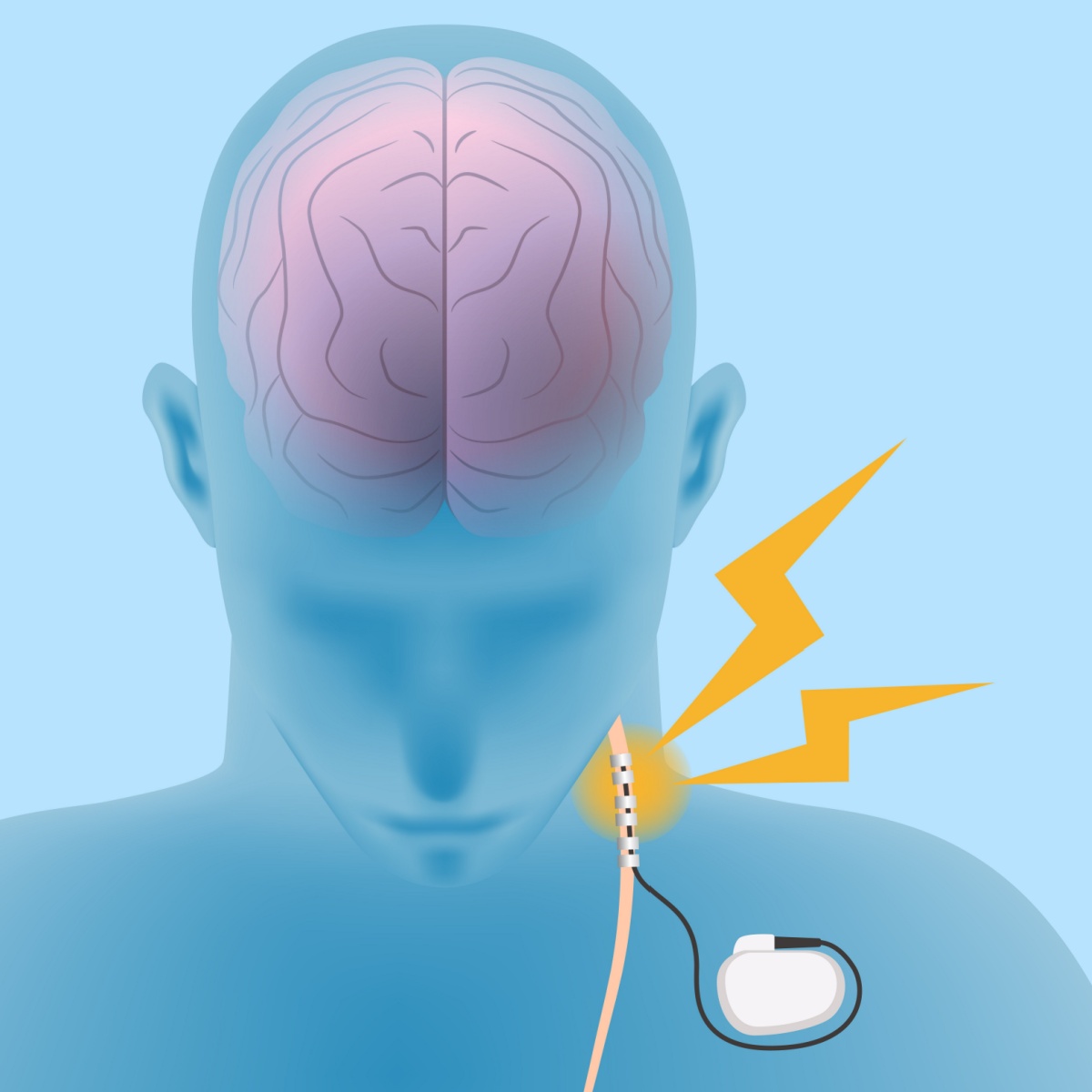Is Vagus Nerve Stimulation Right for You? Key Considerations
Is Vagus Nerve Stimulation Right for You? Key Considerations
What is Vagus Nerve Stimulation (VNS)? Vagus Nerve Stimulation (VNS) is a minimally invasive therapy involving a small, pacemaker-like device implanted in the chest. It sends electrical pulses to the vagus nerve, which helps regulate functions like heart rate, digestion, and brain activity. This stimulation can help stabilize abnormal brain signals linked to epilepsy and depression.
Initially developed for epilepsy patients who don’t respond to medication, VNS is now also approved for treatment-resistant depression. Ongoing research is exploring its use in other neurological and psychiatric conditions.
For more detailed information on the device itself, see the Vagus Nerve Stimulator overview provided by the National Center for Biotechnology Information (NCBI).
____________________________________________________________________
Key Considerations for VNS Therapy
Before deciding if VNS is right for you, several factors should be taken into account. These include your overall health, the condition you’re seeking treatment for, and the potential benefits and risks of the therapy. Below, we break down these critical considerations.
_________________________________________________________________
Your Medical Condition
VNS therapy is primarily used for two conditions: epilepsy and treatment-resistant depression. Understanding how VNS can help with your specific condition is the first step in evaluating its suitability.
__________________________________________________________________
VNS for Epilepsy
VNS is primarily used for people with epilepsy whose seizures aren’t controlled by medication or other treatments. Consider the following:
- Seizure Frequency: VNS may reduce seizure frequency in 30–40% of patients. If you experience frequent or severe seizures, it may offer relief.
- Previous Treatments: Typically considered when medications or surgery haven’t worked.
- Surgical Readiness: Since VNS requires implant surgery, candidates should be in good overall health to avoid complications.
____________________________________________________________________
Effectiveness
Epilepsy
VNS therapy has shown positive outcomes for individuals with drug-resistant epilepsy, though results vary by patient.
- Seizure Reduction: Studies show that approximately 30–40% of patients experience a significant reduction in seizure frequency (by at least 50%) after VNS implantation.
- Severity & Duration: Some individuals also report shorter, less intense seizures, even if the frequency remains unchanged.
- Gradual Improvement: Benefits often increase over time. While some patients see results in months, others may take a year or more to notice meaningful change.
- Quality of Life: VNS may also lead to improved alertness, better mood, and enhanced cognitive function between seizures.
____________________________________________________________________
Side Effects and Risks
Common Side Effects
Most side effects are mild and occur primarily when the device delivers stimulation.
- Hoarseness/Voice Changes: This is the most frequently reported side effect due to stimulation of the vocal cords. It usually improves over time or can be managed by adjusting settings.
- Throat Discomfort or Coughing: Some patients notice a tickling or tightening sensation in the throat during stimulation cycles.
- Shortness of Breath: Mild breathing issues can occur, especially during physical activity when the device is active.
Serious Risks
Though less common, serious complications can occur.
- Surgical Complications:
- Infection at the incision site
- Bleeding or poor wound healing
- Nerve damage (rare)
- Device Malfunction:
- The generator or leads may fail or shift position, requiring surgical correction.
- Some patients may need a revision or replacement due to hardware issues.
Long-Term Commitment
VNS isn’t a one-and-done procedure—it requires ongoing management and maintenance.
- Follow-Up Appointments:
- Initial post-op visits ensure proper healing and device function.
- Regular check-ins are needed to fine-tune stimulation levels based on your response and any side effects.
- Battery Replacement:
- The device’s battery lasts 5–10 years.
- Replacement is typically a simple outpatient procedure but still involves surgery.
- Lifestyle Adjustments:
- Avoid intense impact near the chest or neck where the device and leads are located.
- Certain medical procedures (e.g., MRIs) may require special considerations or device deactivation.
You may be advised to carry a medical ID indicating you have a VNS implant.
___________________________________________________________________
Emotional and Psychological Factors
Expectations
Understanding the limits of VNS therapy is key to emotional readiness.
- It may not eliminate symptoms entirely, but it can lead to meaningful improvement.
- VNS often works gradually, requiring patience and realistic expectations.
- Results vary, and some individuals may see minimal benefit.
Support System
A strong network can make a big difference in your VNS journey.
- Family and Friends: Can offer encouragement, help monitor symptoms, and assist during recovery.
- Mental Health Support: Working with a therapist or counselor can help you process changes, manage stress, and set realistic goals.
- Peer Support: Talking to others with VNS implants can provide valuable insight and reassurance.
____________________________________________________________________
Alternative Treatment Options
Before choosing VNS, it’s important to explore and exhaust other treatment options.
For Epilepsy:
- Anticonvulsant medications
- Surgical treatments such as resective surgery or laser ablation
- Dietary changes like the ketogenic diet
____________________________________________________________________
Conclusion: Is VNS Right for You?
Vagus Nerve Stimulation can be an effective option for treating epilepsy and treatment-resistant depression. But it’s not for everyone. Choosing VNS means weighing your condition, the potential benefits, risks, and the long-term commitment.
Talk to your healthcare provider to determine if it’s the right fit. With the right plan, VNS can offer meaningful relief when other treatments haven’t worked.
___________________________________________________________________
How Hashwani Neurology & Neurophysiology Clinic (HNNC) Can Help with VNS
At Hashwani Neurology & Neurophysiology Clinic (HNNC), we specialize in the diagnosis and treatment of neurological conditions, including candidates for Vagus Nerve Stimulation therapy. Our services include:
- Advanced diagnostic tools like EEG, EMG, and NCS
- Customized treatment plans for epilepsy, depression, and other neurological disorders
- Expertise in evaluating and supporting VNS therapy, from consultation to post-implantation care
Contact Hashwani Neurology & Neurophysiology Clinic (HNNC)
If you or a loved one is considering VNS or dealing with a complex neurological condition, don’t wait. Early evaluation and expert guidance can make all the difference.
Schedule an appointment today to explore whether VNS is the right fit for your treatment journey.

